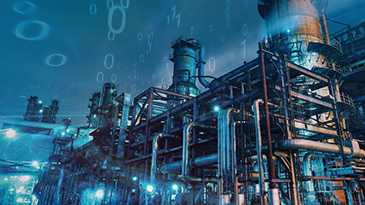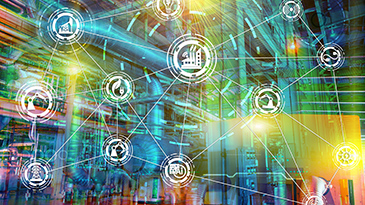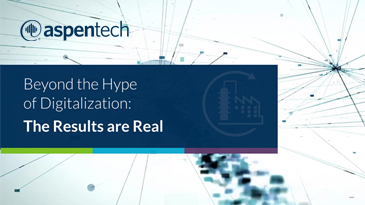According to a Pew Research study, in 2016 millennials became the largest generation in the labor force. These workers and the generations that follow are digital natives, expecting intuitive interfaces and workflows from all the tools they use, whether at work or home. In the US, saddled with tremendous student loan debt, many of these younger workers lack the time and inclination for long-term apprenticeships.
In technical industries built around complex processes where any mistake can be costly, companies must provide these new workers the right tools and guidance to ensure a smooth onboarding. As technology becomes even more ubiquitous, businesses must also ensure less technically-savvy staff understand how to properly use the tools embedded in work processes. If someone accidentally swipes right instead of left on a controller in a chemical plant, you could have a serious problem on your hands.
So how can we make technology more available so we can use it to better manage our lives and businesses? This was a hot topic at OPTIMIZE 2019 as well as an ongoing discussion among industry experts.
It’s Not Just About Simplifying
As the new generation enters the workforce, we need to make sure they can quickly get comfortable with our solutions. Our solutions need to work for them, supporting their learning and ability to innovate. As technology creators, we need to consider not just how to simplify our software and make it easier to use. We need to also add new technology such as cognitive guidance to help workers make the best decisions and learn from the experiences of those who have preceded them.
This is the value of AI-driven decision making. We are making optimizing operations more intuitive, less risky and more insightful, removing the need for decades of learning to deliver results. Just like having an experienced co-pilot on a flight, having an AI-powered cognitive guidance system that can give you feedback on that swipe or click before it’s too late can be a huge help to recommend and guide the best course of action.
One of the customer presentations at our recent user conference offered a great example of how AI can essentially bottle up decades of experience and embed it into the system. While implementing Aspen Mtell®, the organization captured knowledge about previous equipment failures to develop monitoring systems that guide staff in preventing future breakdowns. That’s an important step forward in tapping into the power of AI, which will become even smarter, more powerful and intuitive in the future.
This piece is based on an interview with Lawrence Schwartz, Chief Marketing Officer and SVP, Marketing from OPTIMIZE 2019. Watch the full video interview here.
In technical industries built around complex processes where any mistake can be costly, companies must provide these new workers the right tools and guidance to ensure a smooth onboarding. As technology becomes even more ubiquitous, businesses must also ensure less technically-savvy staff understand how to properly use the tools embedded in work processes. If someone accidentally swipes right instead of left on a controller in a chemical plant, you could have a serious problem on your hands.
So how can we make technology more available so we can use it to better manage our lives and businesses? This was a hot topic at OPTIMIZE 2019 as well as an ongoing discussion among industry experts.
It’s Not Just About Simplifying
As the new generation enters the workforce, we need to make sure they can quickly get comfortable with our solutions. Our solutions need to work for them, supporting their learning and ability to innovate. As technology creators, we need to consider not just how to simplify our software and make it easier to use. We need to also add new technology such as cognitive guidance to help workers make the best decisions and learn from the experiences of those who have preceded them.
This is the value of AI-driven decision making. We are making optimizing operations more intuitive, less risky and more insightful, removing the need for decades of learning to deliver results. Just like having an experienced co-pilot on a flight, having an AI-powered cognitive guidance system that can give you feedback on that swipe or click before it’s too late can be a huge help to recommend and guide the best course of action.
One of the customer presentations at our recent user conference offered a great example of how AI can essentially bottle up decades of experience and embed it into the system. While implementing Aspen Mtell®, the organization captured knowledge about previous equipment failures to develop monitoring systems that guide staff in preventing future breakdowns. That’s an important step forward in tapping into the power of AI, which will become even smarter, more powerful and intuitive in the future.
This piece is based on an interview with Lawrence Schwartz, Chief Marketing Officer and SVP, Marketing from OPTIMIZE 2019. Watch the full video interview here.





Leave A Comment